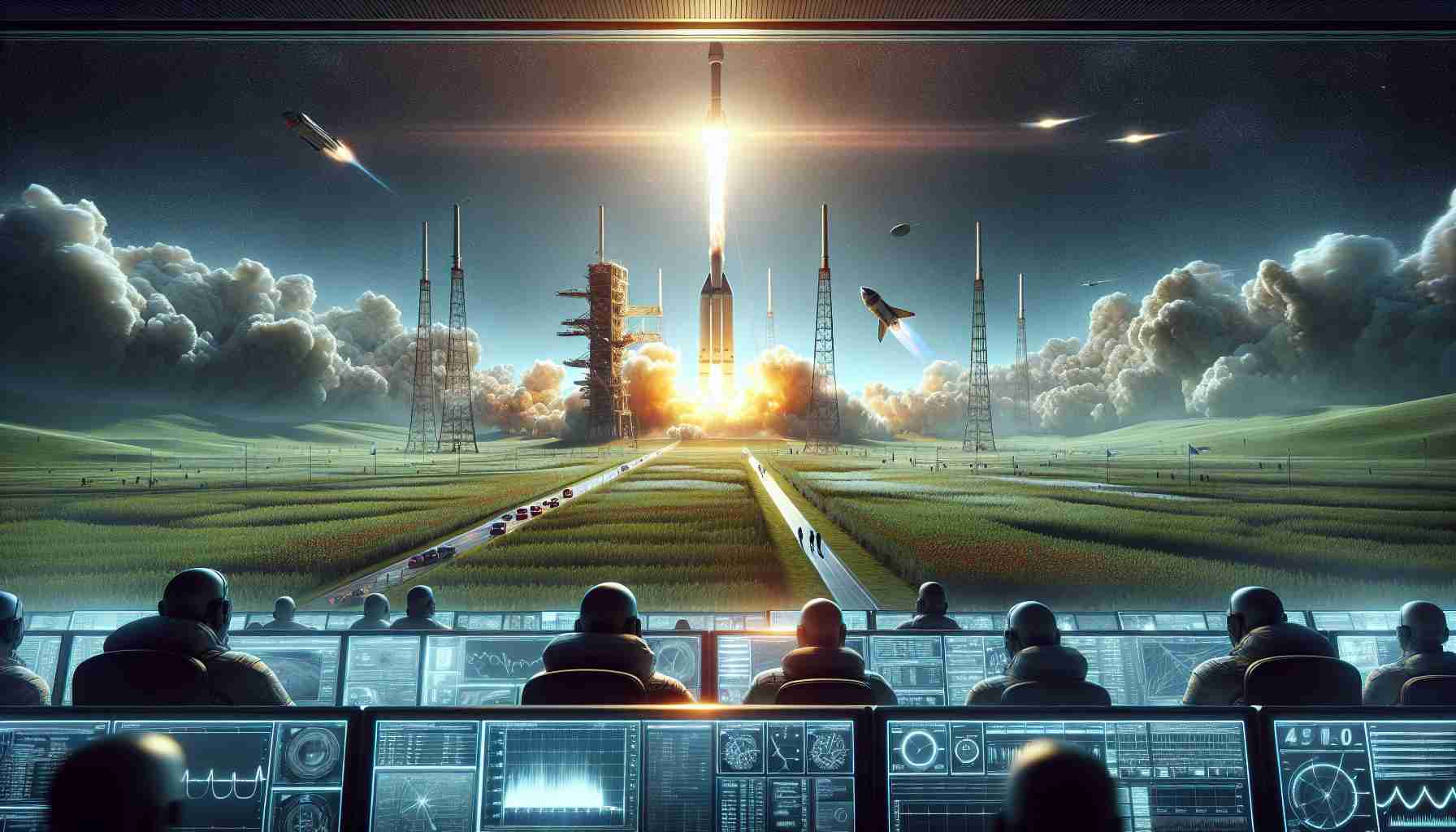Delays in the Skies Above the Ocean
Recent incidents have brought to light how private space operations can interfere with commercial air travel. Falling debris from SpaceX rockets has caused notable delays for Qantas flights over the Indian Ocean, raising concerns for both airlines and passengers.
Qantas, Australia’s flagship airline, reported significant disruptions on its route connecting Johannesburg to Sydney. Despite being proactive in monitoring launch schedules and having regular communication with SpaceX, the airline faced unexpected changes that impacted its operations.
As Ben Holland, the head of Qantas’s operations, mentioned, the airline’s schedule was affected by last-minute notifications from the U.S. Government regarding rocket re-entries. This led to delays of up to six hours for certain flights, frustrating travelers who weren’t prepared for such extensive waiting periods.
With the surge in SpaceX launches—rising from 33 in 2021 to a staggering 134 in 2024—there’s an increasing amount of space debris that needs to be managed. While the Pacific and Indian Oceans may provide some isolation for falling rocket parts, the Federal Aviation Administration (FAA) has strict regulations that prohibit flights in areas of active rocket activity.
As commercial space travel continues to grow, the need for effective coordination between air traffic and space launches becomes more critical to ensure safety for all.
Delays in the Skies Above the Ocean: The Rising Intersection of Space and Air Travel
The growing number of private space operations, particularly by companies like SpaceX, is not only reshaping the landscape of aerospace technology but also impacting air travel in profound ways. Recent incidents of falling debris from SpaceX rockets have caused significant delays in commercial flights, such as those from Qantas, connecting vital international routes. While the excitement for advancing space exploration and travel is palpable, the interconnected ramifications on the environment, humanity, and the economy denote a complex future that requires urgent addressing.
The interference with commercial air travel raises environmental concerns regarding the amount of rocket debris falling back to Earth. Each launch contributes to the burgeoning cloud of space junk orbiting the planet, which presents risks of collisions not only in outer space but also during re-entry phases. As the number of launches escalates—33 in 2021 to an anticipated 134 in 2024—the likelihood of debris entering Earth’s atmosphere and landing in populated areas grows. This could potentially contribute to ecological disasters or endanger wildlife, particularly in sensitive oceanic regions, where rocket parts may cause marine pollution.
Humanity’s increasing reliance on air travel for global connectivity also comes into play. Flight delays not only disrupt schedules but also amplify stress and inconvenience for passengers, which could deter people from traveling. The aviation sector, already grappling with sustainability issues and the impact of climate change, now faces added challenges in maintaining smooth operations amidst the complications introduced by space activities. Enhanced coordination between air traffic control and space launches is imperative, highlighting the need for robust regulatory frameworks that prioritize public safety without stifling innovation.
Economically, the strains placed on airlines as they navigate delays due to rocket landings could lead to increased operational costs, which may ultimately be passed on to consumers through higher ticket prices. Additionally, the uncertainty in scheduling can affect cargo transport, international trade, and supply chain management, having a ripple effect on the global economy.
As we look to the future of humanity, the intersections of space exploration and air travel underscore the importance of sustainable practices and effective management of our airspace. The next generation of flight technology must aim for safer, more efficient travel experiences while coexisting with burgeoning space industries. Investments in predictive technologies and enhanced communication systems between space launch companies and airlines can significantly improve coordination, ensuring that humanity can thrive in both the air and beyond.
In conclusion, as we launch into a new era marked by the excitement of space ventures, we must remain vigilant about our commitments to sustainability, safety, and economic viability. Balancing these interests will be crucial as we navigate the dual realities of expanding our horizons into space while ensuring the skies remain safe and accessible for all forms of aviation. The future will require collaboration and innovation, emphasizing that as we reach for the stars, we must not lose sight of our responsibilities to each other and our planet.
Air Travel Disruptions: How SpaceX Launches Impact Airline Operations
Introduction
The rising number of private space launches is increasingly affecting commercial air travel, leading to significant delays and operational challenges for airlines. A recent incident involving SpaceX’s rocket re-entries has highlighted the urgent need for better coordination between space operations and air traffic management, particularly for airlines like Qantas.
Overview of the Situation
Qantas, Australia’s flagship airline, has experienced notable delays on its Johannesburg to Sydney flights due to falling debris from SpaceX rockets. In 2024 alone, SpaceX has ramped up its launch frequency to an astonishing 134 missions, compared to just 33 in 2021. This surge raises concerns over space debris management and its implications for commercial aviation, especially in regions over the Indian and Pacific Oceans where rocket parts may fall.
Delays and Passenger Impact
Reports indicate that Qantas faced disruptions of up to six hours because of last-minute notifications from the U.S. Government regarding rocket activities. Such delays have been extremely frustrating for passengers, who often find themselves unprepared for extended waiting periods.
What is Causing the Delays?
1. Regulatory Compliance: The Federal Aviation Administration (FAA) maintains stringent regulations concerning air traffic in areas with active rocket launches. These rules are designed to ensure the safety of both air and space travelers but can result in significant operational constraints for airlines.
2. Communication Breakdowns: Despite Qantas’s proactive measures, including consistent monitoring of launch schedules and direct communication with SpaceX, the airline has still been caught off-guard by last-minute changes. This lack of timely information complicates flight planning and reliability.
Trends in Space Travel
The trend of increasing private space launches, particularly from companies like SpaceX, is expected to continue. Innovations in reusable rocket technology and the growing commercial viability of space exploration are driving more frequent launches.
Strategic Solutions
1. Improved Coordination: Enhanced collaboration between aerospace and aviation authorities is critically needed to ensure that airlines receive timely information about potential delays due to space operations.
2. Advanced Monitoring Technologies: Implementing systems to predict and monitor space debris trajectories could provide airlines with better insight and allow for more efficient flight routing.
Potential Ramifications
– Operational Efficiency: Airlines may need to invest in more robust operational frameworks to adapt to the evolving landscape of airspace regulation and private space launches.
– Passenger Experience: Ongoing disruptions may hinder customer satisfaction and affect airline reputation, necessitating improvements in communication and compensatory measures during delays.
Conclusion
As private space activities expand, the interface between air travel and space operations becomes increasingly complex. Airlines like Qantas must navigate these challenges to maintain operational integrity and passenger trust. Continued dialogue and innovative solutions will be essential in ensuring the safety and efficiency of both commercial aviation and space operations in the future.
For more insights on aviation and space interaction, visit FAA.














